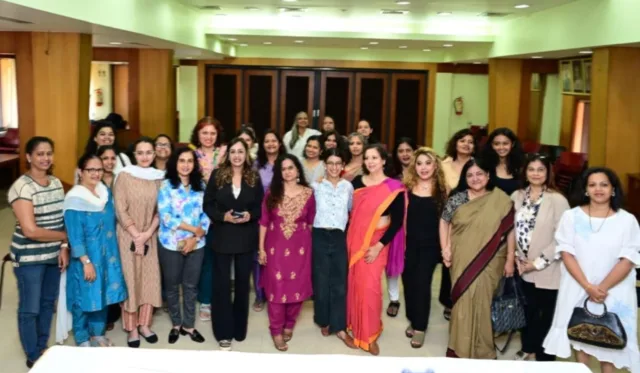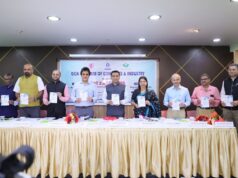The Women’s Wing of the Goa Chamber of Commerce and Industry (GCCI), under the leadership of chairperson Asha Arondekar, hosted a powerful and deeply-engaging meet on June 7 at the GCCI premises in Panaji, bringing together Goan women from diverse walks of life; from students and homemakers to professionals and entrepreneurs to voice a collective and growing demand for reliable, app-based taxi services in Goa.
The meet was attended by Pallavi Salgaocar, member of the GCCI Managing Committee, and Pallavi Arondekar, Director at GCCI. The session saw women candidly sharing how the absence of structured and dependable mobility options limits not just their freedom, but also their economic and social participation.
Asha Arondekar noted, “As women, we face a range of transportation challenges every day—that’s why we brought together these women to share their voices and experiences. While existing apps are helpful, what we really need is a wider network, especially with our growing population. This isn’t just about big platforms—it could very well be a Goa-based app. With the right support system, even cost-related issues can be addressed more effectively,” she further added.
The diverse voices at the forum painted a clear picture:
• Anita Bagla, a uniform manufacturer, explained how hiring cabs for multiple client visits eats into her profits, as she cannot drive herself.
• Architect Jyoti Bhonsle spoke of turning down projects in South Goa due to the loss of productive time while commuting.
• Niharika, a college student, shared how being dependent on her parents for transport limits her freedom and makes studying in metro cities seem more appealing.
• Rina Barreto, a communications professional, said being the family’s default driver leaves her with little time for her own work.
• Rahila Khan, a teacher, expressed the emotional toll of relying on male family members or inconvenient public transport for her daily commute.
Voicing a broader concern, entrepreneur Ruchika Dhaval said, “We work odd hours in the event industry and need reliable rides back home. Let’s stop being tourist-centric. Goans need dependable transport too.”
The event also included insights from Natasha Bhardwaj of the South Asian Institute of Crime and Justice Studies, who noted, “This is something that 50% of the state’s population was missing. We all need a system that’s dependable, accessible, and affordable. That’s what makes us feel free.”
Several participants emphasised that the lack of app-based taxi services is no longer a minor inconvenience rather it is a barrier to financial independence and safety.
“When the rest of the country has gone digital, why should Goan women be left behind?” questioned a participant. The Women’s Wing of GCCI strongly believes that accessible mobility is a critical enabler for women’s empowerment.
Participants also welcomed forward-looking provisions included in the draft Goa Transport Aggregator Guidelines 2025, which the Government of Goa has proposed to support mobility equity:
• Comprehensive Health Insurance: For female drivers, health insurance coverage of not less than ₹10 lakh (FY 2025-26 base), with annual 5% increments. Crucially, the coverage is extended to parents and children of female drivers.
• Annual Insurance Reimbursement: For vehicles that complete 500 trips in a year with a female driver, 100% of the insurance premium (up to ₹30,000) will be reimbursed.
• Vehicle Purchase Subsidy (For female Ownercum-Drivers with PSV Badge intending to purchase a transport passenger vehicle):
• ₹1 lakh for female owner-cum-drivers purchasing new electric motor cabs
• ₹20,000 for electric motor bikes or autorickshaws
• Subsidies split: 50% upfront, 50% post 500 trips on aggregator platforms
• Aggregator Incentive: Aggregators with 20% of the fleet driven by female drivers at the time of renewal are eligible for a 100% waiver on renewal fees.
The meet concluded with a clear and unified message: Goa needs structured, app-based taxi services not just for its tourists, but for its own people, especially women who aspire to grow, thrive, and contribute to the state’s progress, stated a press release.






